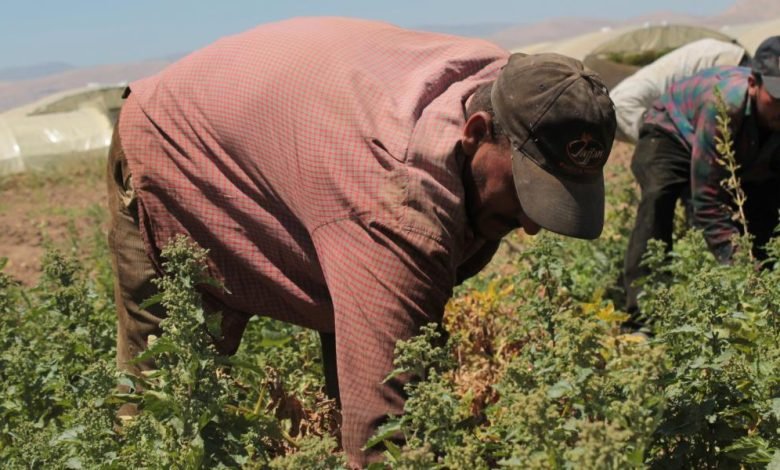
Jordan Daily – On Wednesday, ACTED held the National Dialogue Forum on Decent Work Conditions for Women in the Agricultural Sector.
According a statement ,the forum was part of the “Growing the Economy” project funded by the French Development Agency (AFD) in partnership with Action Against Hunger (ACF), TDH, and the Phenix Center for Economic and Information Studies, in cooperation with Eco-Consult and the Royal Society for the Protection of Nature (RSPN).
During the forum, the Phenix Center launched the results of an assessment study on labor rights and decent work in the Jordanian agricultural sector, which aimed to shed light on the challenges facing workers, whether Syrian refugees or Jordanians, in addition to measuring the extent to which employers are aware of labor rights and decent work standards and the extent of their implementation.
The study relied on a questionnaire distributed to a sample of 384 workers and employers in 192 farms in the governorates of Irbid, Ajloun, Madaba, and Balqa, in addition to in-depth interviews with experts in the field as well as focused sessions with workers and employers in the agricultural sector of both sexes.
Aisha Barhouma of the Phenix Center presented the highlights of the study, indicating that there is a great weakness in the level of awareness and commitment to labor rights stipulated in Jordanian labor legislation, especially the Agricultural Workers Law of 2021 and its amendments, and decent work standards among many employers in the agricultural sector in Jordan.
The study showed that the social protection system in the agricultural sector is weak, as most workers, whether Jordanians or refugees, are not registered with social security, in addition to the low wage levels in this sector, below the minimum wage of 260 dinars per month.
The study showed that most labor contracts between workers and employers are oral contracts, which facilitates the poor enjoyment of basic labor rights by workers, leading to a lack of job security and stability in the sector.
The study also showed that there is a weakness in the application of occupational safety and health standards in the agricultural sector, which led to the occurrence of many work injuries in light of the very weak coverage of the social security system for workers in this sector.
The study also indicated that agricultural workers are not represented in labor unions that defend their rights and interests, which may exacerbate the violations against them.
The study pointed out that the agricultural sector in Jordan suffers from other challenges related to difficult climatic conditions, with the majority of workers using traditional agricultural tools and techniques that hinder adaptation to weather changes and reduce productivity.
The study recommended the need to develop new insurance tools with lower costs to expand the scope of social security coverage in the agricultural sector and to increase the effectiveness of the Ministry of Labor’s inspections of the agricultural sector to ensure the implementation of the provisions of the law by increasing the ministry’s allocations in the general budget so that the ministry can increase the number of inspectors and develop their inspection capabilities.
The study also recommended implementing awareness campaigns for male and female workers and employers in the agricultural sector about their legal rights and responsibilities, establishing a clear, confidential, and easy mechanism for filing complaints related to harassment or abuse in the workplace, and promoting a culture of filing complaints.
It emphasized the need to enhance the work environment in the agricultural sector, especially for women, by providing the necessary protective equipment for female workers and providing caravans to be used as restrooms and sanitary facilities for them.
The participants emphasized the need to establish an official special trade union for agricultural workers to defend their interests and protect them from any possible violations, in addition to covering all agricultural workers with social security through the implementation of the Agricultural Workers Law of 2021.
They also stressed the need to intensify inspection visits by the Ministry of Labor to the agricultural sector to ensure the protection of workers from labor violations committed by some employers and to increase awareness campaigns on the rights of agricultural workers and the obligations of employers according to the Labor and Social Security Laws and the Agricultural Workers Law.

